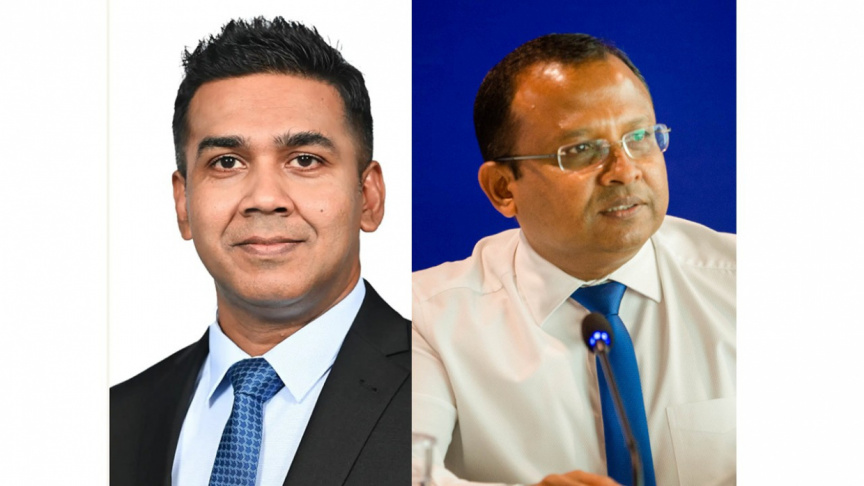
Dr Abdullah Fairoosh (L), formerly an assistant commissioner of police, now a state minister in Homeland Ministry and former commissioner Abdullah Riyaz (R).
Former senior police officials have rejected lawyer and former Kendhoo MP Ali Hussain’s idea to elect the Commissioner of Police through a public vote, arguing that such a move could politicize the Maldives Police Service.
Ali Hussain wrote on X on Tuesday that the police “can never work for the people as long as the Commissioner of Police is under the power and influence of the President.” He suggested that the position should be filled and removed through a public vote to ensure independence.
Responding indirectly, Dr Abdullah Fairoosh, a former Assistant Commissioner of Police and current State Minister at the Ministry of Homeland Security and Technology, warned that electing a police commissioner would turn the institution into a political contest.
“The role demands impartiality, professionalism, and operational independence, not campaign promises,” Fairoosh wrote on X.
Electing the Commissioner of Police risks turning the Police Service into a political contest. The role demands impartiality, professionalism, and operational independence, not campaign promises. Security leadership must serve the Constitution and the law, not electoral agendas.
— Phairoosch, PhD (@Phairoosch) October 8, 2025
Ali replied to Fairoosh’s post, questioning how independence and professionalism could be maintained if the President holds the power to appoint or dismiss the Commissioner.
Sun attempted to reach Ali for further comment but received no response.
Former Commissioner of Police Abdullah Riyaz also weighed in, stating that while the UK has experimented with electing police commissioners, the model has not proven effective. “I believe that professionals within the police should be interviewed and given the opportunity to show who is capable,” he said.
Riyaz emphasized that the Commissioner does not necessarily have to be appointed directly by the President. He proposed a model similar to the FBI in the United States, where the President nominates a senior officer and Parliament confirms the appointment.

“If a police commissioner is elected by the public, the result will be the politicization of the police service,” Riyaz said. “The people elect the Parliament and the President. Therefore, there should be powers and checks and balances for those who are appointed.”
He concluded that the most suitable method for the Maldives would be for the President to submit names of qualified senior police officers to Parliament for approval, stressing that the role should not be filled by someone lacking professional credentials.